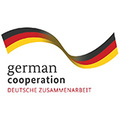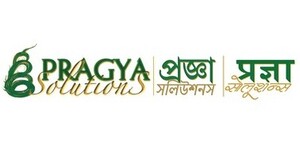Welcome to DRRIS - Dynamic Risk & Response Information System
The Dynamic Risk & Response Information System (DRRIS), particularly designed for the last-mile, is a process of dynamic risk governance and disaster response. It is delivered by a Disaster Management network at the local level that spans communities, government and responders, towards collaborative disaster information management, risk reduction co-decision and multi-stakeholder response coordination.
Pragya has worked extensively on Disaster Management and has special expertise in programming and disaster response in geographically difficult areas and has conducted rigorous participatory research in the domain to develop the DRRIS. The DRRIS is a decentralized system for facilitating disaster management processes in vulnerable and remote geographies. It empowers remote and marginalised communities to take charge of disaster management at the local level, whist enabling seamless community-state collaboration.
This citizen-led DM initiative was first implemented in Uttarakhand, India, and has been active in that area since 2016. It is currently being expanded to new geographies in the South Asia region, including in northern and eastern India and parts of Bangladesh and Nepal. The initiative is aimed at improving community capacities for disaster risk reduction and response, making communities more resilient with effective disaster preparedness and risk identification, whilst supporting local authorities with improved early warning and relief information tools.
The DRRIS facilitates decentralised information generation via three main components:
- 'Go-Risk' is a location-specific pre-disaster early-warning tool using grassroots measurement grids. The data parameters monitored through the app are specific for each hazard. The relevant authorities are alerted in case of a threshold breach (potential early warning).
- 'RNR-Comm' is a relief and response information communication tool for post-disaster damage and needs assessment. It documents the age and gender-specific needs of disaster-affected populations to facilitate rescue and relief operations.
- The 'Emergency Contacts' section offers the contact information of the nearest government support structures and local responders who can help in coordination with local authorities, emergency relief and rescue operations.
The DRRIS app is for use by local disaster communications networks that link the remotest corners right through to government responders for timely pre-disaster warning and efficient post-disaster needs assessment and information-relay. The network consists of:
- Climate Resilience Champions (CRCs) - local youth responsible for: weather and geological data monitoring and reporting; assisting with effective risk mitigation and preparedness; assisting in community evacuations; acting as first responders in emergencies; and assessing and communicating post-disaster needs.
- Points of Presence (POPS) - proximal communications points, typically police or forest outposts equipped with satellite or radio communications technologies responsible for: relaying information across the network and assisting in emergency relief and evacuation.
- Climate Action Clinics (CAC) - Pragya-supported field units responsible for anchoring the network and managing information flow, and providing local-level training, information and communication support to communities as well as government Disaster Management authorities.






